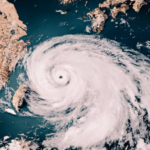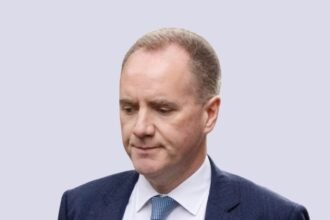Commonwealth heads of government are prepared to challenge the United Kingdom and agree on measures to investigate reparatory justice for the transatlantic slave trade. Although Downing Street insists the matter is not on the agenda for the forthcoming summit in Samoa, diplomatic sources suggest officials are negotiating an agreement to undertake additional research and start a “meaningful conversation” about reparations. This issue could leave the UK owing billions of pounds unresolved.
- What Does the Draft Communiqué Highlight About Calls for Meaningful Dialogue?
- What Tensions Exist Between the UK and Commonwealth Nations?
- What Common Historical Experiences and Practices Like Blackbirding Are Addressed?
- What Calls for Apologies and Reparations Are Intensifying?
- What Is the UK Government's Stance on Reparations?
- What Is Sir Keir Starmer's Focus on Current Issues?
- What Role Will King Charles Play in Future Discussions?
What Does the Draft Communiqué Highlight About Calls for Meaningful Dialogue?
“Heads, noting calls for discussions on reparatory justice about the transatlantic trade in enslaved Africans and chattel enslavement… agreed that the time has come for a meaningful, honest and respectful conversation towards forging a common future based on equity.” The current draft summit communiqué says.
Emphasising the value of inclusive discourse, the communiqué notes heads of government pledging “an active role in bringing about such inclusive conversations addressing these harms.” “To prioritise and facilitate further and additional research on the transatlantic trade in enslaved Africans and chattel slavery that encourages and supports the conversations and informs a way forward,” they agreed.
What Tensions Exist Between the UK and Commonwealth Nations?
Diplomats ahead of the summit helped construct this document, which could be changed once Commonwealth leaders arrive. Previously successful in preventing a separate proclamation on the topic, British officials now embrace the inclusion of three complete paragraphs in the communiqué delineating the Commonwealth’s comprehensive stance on reparatory justice.
Financial reparations, debt relief, formal apologies, educational initiatives, museum building, economic help, and public health support are just a few ways reparatory justice for slavery could manifest itself. Officials from Caricom, the group representing Caribbean countries, have tried to extend the focus of the debates to include Pacific crimes in addition to the transatlantic slave trade.
What Common Historical Experiences and Practices Like Blackbirding Are Addressed?
Most of the member states “share common historical experiences about this abhorrent trade, chattel enslavement, and the debilitation and dispossession of Indigenous people,” the draft communiqué notes. It also covers “blackbirding,” in which Pacific islanders were misled or abducted into cheap or enslaved person labour in colonies all around.
Diplomats now expect reparatory justice to be a top priority for the next Commonwealth summit set for two years in the Caribbean, most likely in Antigua and Barbuda.
What Calls for Apologies and Reparations Are Intensifying?
Calls from Commonwealth officials for the UK to apologise and pay reparations—possibly worth trillions of pounds—have been mounting in the run-up to this year’s conference. Supported by Patrick Robinson, a judge on the International Court of Justice, a recent University of West Indies investigation found that the UK owes more than £18 trillion in reparations for its part in slavery across 14 Caribbean countries.
Bahamas Prime Minister Philip Davis stressed on a recent visit by Foreign Office minister Baroness Chapman that “the fight for reparations was far from over.” He said, “The need for restitution is much more than financial payback. It is about realising the long-lasting effects of millennia of exploitation and making sure the history of slavery is handled morally and honestly. We Caribbean countries have stood together in our quest for justice for generations past, and those of us are now living with that terrible legacy.
What Is the UK Government's Stance on Reparations?
Though they did not comment on the leaked material, a UK government spokesman said, “Reparations are not on the agenda for the Commonwealth Heads of Government meeting.” The government’s stance hasn’t altered; we pay no compensation. Our main emphasis is using the summit at [the Commonwealth Heads of Government Meeting] to address the shared prospects we can unleash across the Commonwealth—including guaranteeing more economic growth.
Though technically accurate, the Downing Street posture—that reparatory justice is not on the agenda—has infuriated several Caribbean ministers as it is clear that the subject will be covered during the summit.
What Is Sir Keir Starmer's Focus on Current Issues?
The UK Prime Minister arrived in Samoa as the first sitting prime minister to tour a Pacific island nation. Speaking to reporters en route, he underlined the need for Commonwealth leaders to focus on contemporary issues—including climate change—rather than exploring past problems.
“What most interests them is, can we help them work with, for example, international financial institutions on the sorts of packages they need right now about the challenges they’re facing?” he said. “That’s where I will direct my attention—rather than what will ultimately be entirely interminable debates on previous reparations. Of course, everyone finds slavery repulsive; the trade and the practice are not debatable. From my vantage point, though, I think… Rather than spend much time on the past, I would much like to roll up my sleeves and work with them on the present and future-facing issues.
What Role Will King Charles Play in Future Discussions?
King Charles is scheduled to formally launch the summit after arriving in Samoa for a four-day stay. During a trip to Kenya last year, the King voiced the “greatest sorrow and regret” for the “wrongdoings” of the colonial past. Still, he refrained from apologising, which would have required ministers’ agreement.
Some non-Caribbean nations support the British stance and would rather have the summit centre more on urgent modern issues like climate change, which impacts many Commonwealth nations—about half of which are small island states.
Still, Caribbean nations seem determined to keep demanding justice and compensation.
Supporting reparatory justice, all three candidates vying for election this weekend as the next secretary-general of the Commonwealth—Shirley Botchwey of Ghana, Joshua Setipa of Lesotho, and Mamadou Tangara of Gambia—have underlined Commonwealth leaders’ continuous dedication to resolving historical grievances








